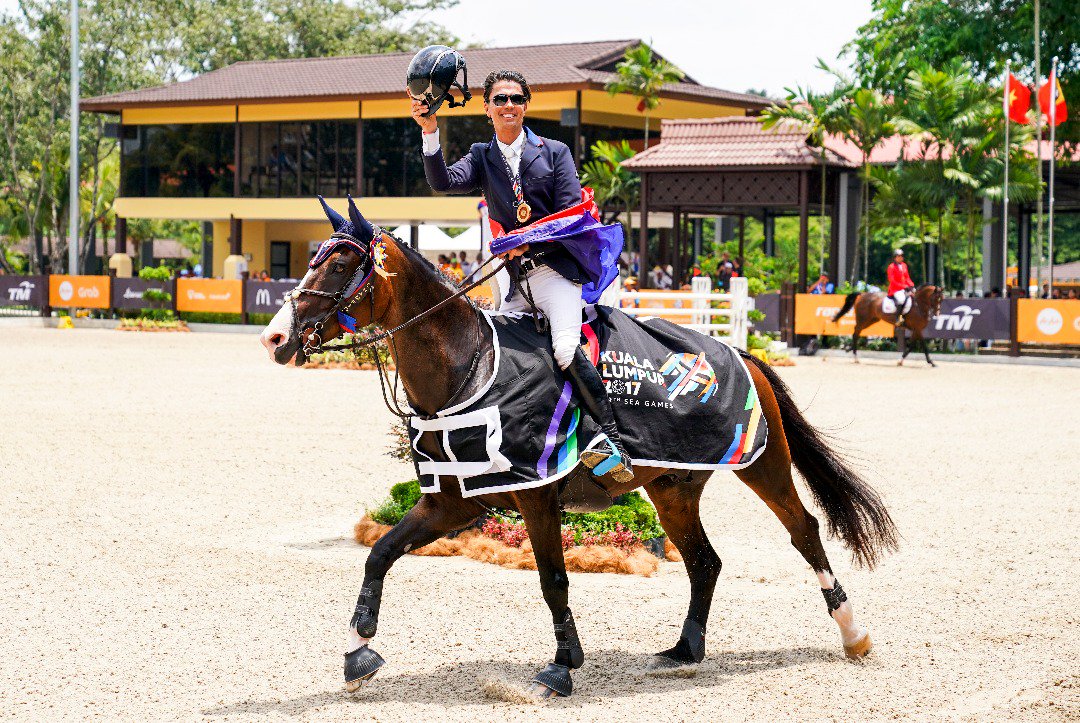
Colin Syquia of the Philippines. Photo taken from the official Twitter account of the 2017 Southeast Asian Games @KL2017
It could have been just an accident, or worse, a case of foul play.
These are the angles the stakeholders of the Equestrian Association of the Philippines (EAP) are looking at as they come to the defense of 2017 Southeast Asian Games gold medalist Colin Syquia, whose mount Adventure E, tested positive for a banned substance.
“One of the theories is if it’s possible that the vitamins administered to the horse—by the official veterinarian when the horse arrived dehydrated—could have been a source,” said EAP stakeholder Carissa Coscolluela.
“We went to the [Philippine National Police] lab, gave samples of the vitamins, which they tested and turned out to have a similar structure of the prohibited substance.”
Syquia—who debuted with an individual jumping gold in the Kuala Lumpur SEA Games—has been suspended by the international equestrian federation (FEI) after this horse was found to have Clomethiazole, a banned substance, in its blood.
“This drug is not what you use for horses; it’s used by people,” said Coscolluela. It’s a sedative for recovering addicts and alcoholics. You can’t buy this in America, in the Philippines, in Europe, or anywhere where Colin and his horse were.”
Syquia’s mount had to travel for 36 hours—making several stops—from Florida to Kuala Lumpur, where the dehydrated horse was given vitamins by the Games’ official veterinarian.
Officials are also looking at foul play, noting “there are several observations of the actual venue that would lead one to believe that foul play or an accident could have caused the findings” such as the lax security.
“Colin has been competing top level for decades and has not once had a doping case,” said Coscolluela. “This is a guy who mixes the feeds of his own horse. He doesn’t use prepared feeds. He’s for all natural, organic. He’s that kind of person.”